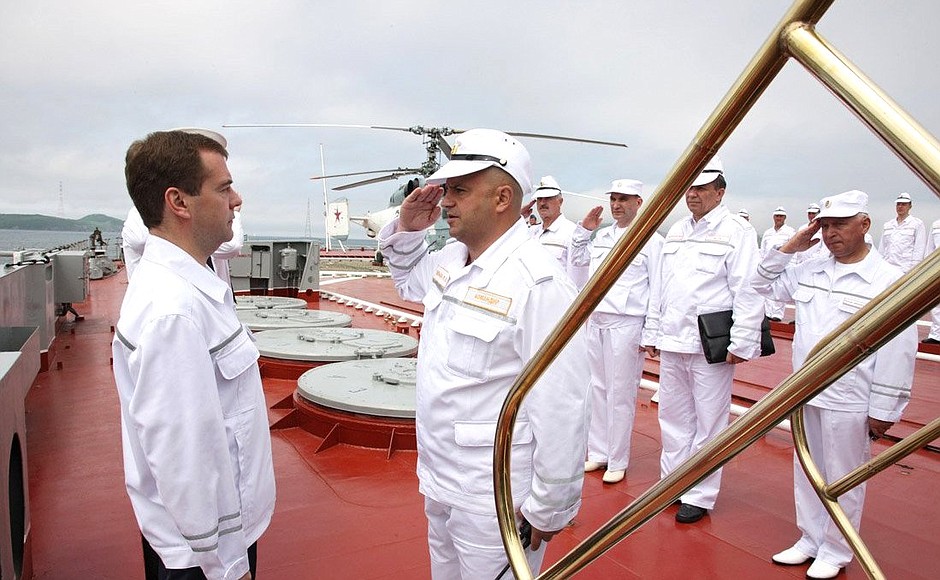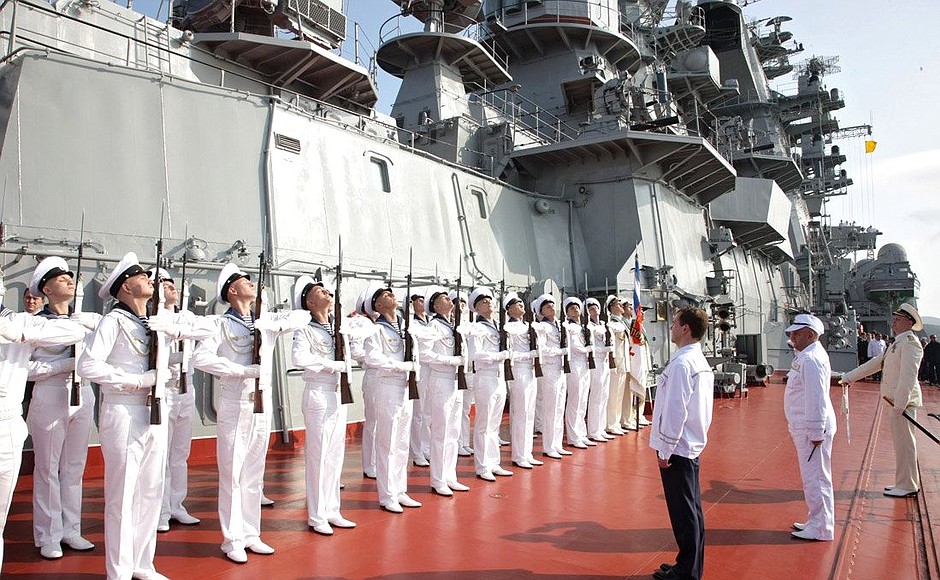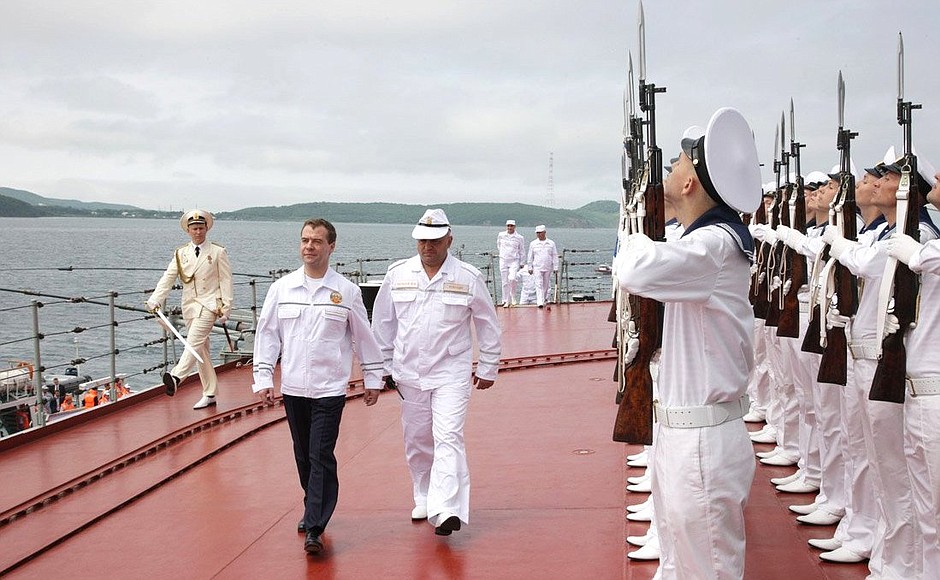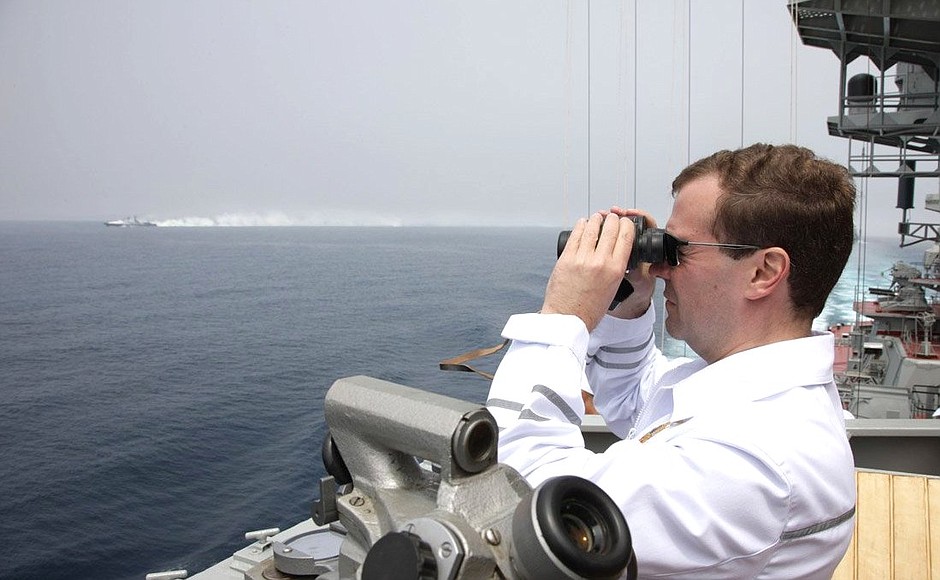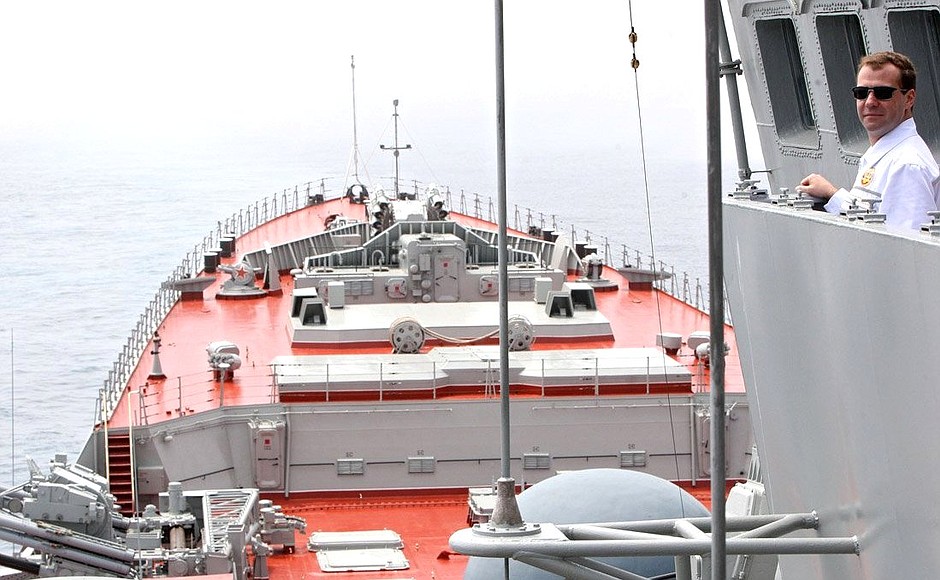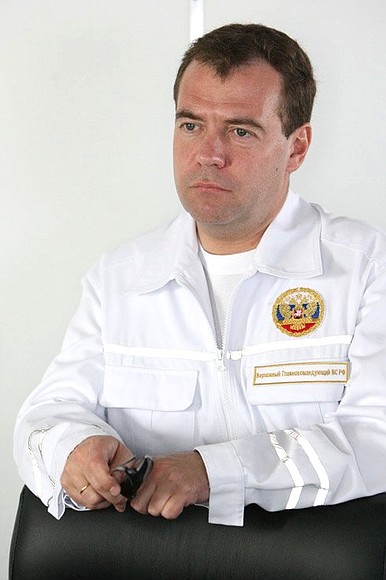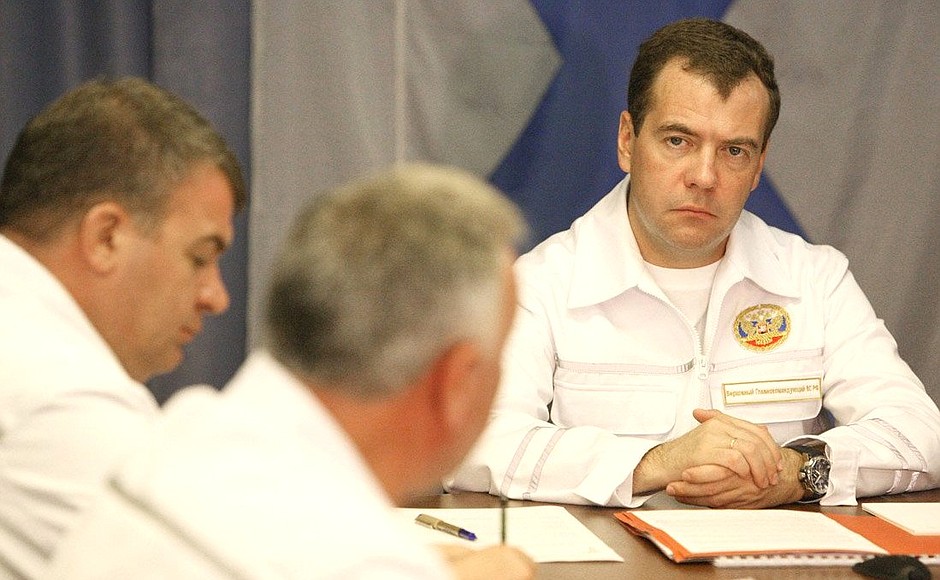Mr Medvedev rated the servicemen’s professionalism highly and noted the professional and effective way in which they carried out the exercises’ set tasks. The President said that the exercises were a demonstration of the armed forces’ ability to carry out missions in the Pacific Ocean region.
Chief of General Staff Nikolai Makarov, who is overseeing the exercises, briefed the President on training operations on July 5–7 involving the landing of a large tactical operations paratroops force with the mission to capture enemy positions in the air and on land.
Taking part in the meeting were Defence Minister Anatoly Serdyukov, his first deputy Vladimir Popovkin, Chief of General Staff Nikolai Makarov, Navy Commander in Chief Vladimir Vysotsky, and Commander of the Pacific Fleet Konstantin Sidenko.
The Vostok 2010 military training exercises began on June 29 and will run until July 8. The exercises are taking place at 11 joint armed-forces test grounds, three air force and air defence test grounds, and four Pacific Fleet test grounds. In total, several tens of thousands of servicemen, up to 70 aircraft, 2,500 pieces of military hardware, arms, and special equipment, and up to 30 vessels are taking part in the exercises.
* * *
President of Russia Dmitry MEDVEDEV: The time has come to make a preliminary assessment of these strategic operations exercises. They are still continuing, but we can sum up the part we have observed today. The aim is clear – to test the armed forces’ ability and readiness to carry out the set missions. We hold regular military exercises now. Last year, we took part in exercises in various regions, including with the Autumn 2009 exercises in western Russia and Belarus.
Now we continue with the naval side of operations.
<…>
Our main achievement at this point is that we now hold regular exercises in a variety of locations. The focus this time is on the Asia-Pacific region, and these exercises demonstrate Russia’s ability to ensure its security in this region. I held a meeting on developing cooperation with this region a few days ago. This is one dimension of relations and it is our biggest priority at the moment, of course, in this rapidly growing part of the world. But at the same time, if we are to work here, develop our economy and build up our Far East, we also need to be able to guarantee our country’s security in this part of the world too, given the problems that exist in the region. True, there are fewer problems here than in other parts of the world, but they exist nonetheless. We know these security threats, and exercises such as these we are conducting now must demonstrate our ability to carry out missions successfully in this region.
What I saw today as Commander in Chief showed me that the armed forces are acting professionally and effectively, and displaying the technical knowledge and skills needed to carry out tactical missions and achieve their ultimate strategic goals. I hope that we will continue to develop strategic operations exercises such as these. I hope too that these exercises will provide the opportunity to put our new defence approaches to the ultimate test and demonstrate their effectiveness. Once the exercises are over, a preliminary assessment will be made of all the steps taken so far to modernise and reorganise the way our armed forces operate. This will enable us to evaluate our readiness to improve the armed forces in general and carry out our long-term national defence development plans. We have already approved the main decisions in this area, which are all well known as regards the operational side of things, our strategy over the coming years, and our plans for modernising arms and equipment. I hope that what we have seen today, the missions being carried out as part of these exercises, will answer the questions that we have been discussing.
We are meeting today on board the nuclear-powered battle cruiser Peter the Great. This cruiser is a symbol of our armed forces’ strength and our naval power. I hope that exercises such as these taking place now will help us to continue developing our navy so that it can successfully fulfil the tasks before it today.
We will discuss a number of issues regarding our navy’s development in general, and will discuss the Pacific Fleet too.
